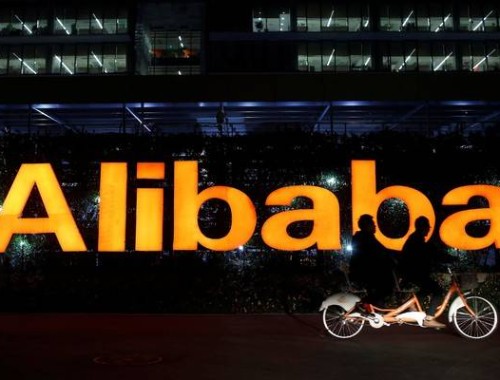The world’s biggest online sales event goes global
Previously limited to China, Singles Day last year easily exceeded U.S. sales on Cyber Monday and Black Friday combined. Chinese e-commerce giant Alibaba is promoting the Nov. 11 sales event internationally via the English-language AliExpress.com, and some U.S. e-commerce companies are joining in.

Singles Day is a massive online shopping holiday that in 2013 generated more online sale than Cyber Monday and Black Friday combined. Few are aware of it outside of China, but Alibaba wants to change that.
Singles Day occurs each year on Nov. 11 (the repetition of the number “1” said to denote people who are not married), and Alibaba Group Holdings Ltd. Alibaba is investing heavily to take the holiday global. If anyone has the money and resources to do it, it’s Alibaba, the largest e-commerce company in the world by sales on its platforms and stock market value.
The day-long shopping holiday, launched in China in 2009 by the e-commerce giant, originally was designed to promote promote Tmall, a marketplace Alibaba had launched the previous year. It’s grown into a national e-commerce holiday. Originally touted as a day for Chinese to celebrate being single by buying gifts for themselves—or as the antithesis of Valentine’s Day—it’s now a day where Chinese head to the web seeking (and expecting) deep discounts from online retailers.
To put the day in perspective, last year Singles Day produced $5.75 billion in web sales on Alibaba’s two big marketplaces, Tmall and Taobao, nearly double the $3.0 billion a year earlier. And that’s just sales on Alibaba marketplaces. Other Chinese retailers, online and offline, have also begun to promote sales on Nov. 11. By comparison, U.S. e-retailers sold $1.735 billion worth of merchandise on Cyber Monday, or the Monday after Thanksgiving and $1.199 billion on Black Friday or the day after Thanksgiving, according to web measurement firm comScore Inc.
This year’s event in China—where it is already Nov. 11 (Beijing time is 13 hours ahead of U.S. Eastern Standard Time—this year’s Singles Day event is off to a strong start on Alibaba’s online marketplaces. The company reported that consumers purchased $1 billion worth of merchandise in the first 17 minutes of the sales event; last year it took an hour to reach $1 billion in sales, Alibaba says. 48% of the first $1 billion in purchases were made on mobile devices, Alibaba says. Alibaba subsequently reported that it hit $2 billion in purchases one hour and 12 seconds after the sale began, with mobile devices accounting for 45.7% of orders.
The e-commerce operator has a goal of making the Chinese shopping day a worldwide event in five to 10 years as Alibaba’s operations, once largely confined to China, continue to expand internationally through collaboration with more governments, banks and postal services, Daniel Zhang, Alibaba Group’s chief operating officer, said in a press conference in October.
Alibaba, which in September raised a record-breaking $25 billion in an initial public offering in the U.S., recently outlined its international Singles Day plans on its company blog. And, they are extensive.
For the first time, Alibaba will promote Singles Day on AliExpress, its English-language international shopping web site for consumers outside China. The site will put more than one million items on sale for the holiday. It says “thousands” of items will be available for free shipping globally while over 70% of goods on the Russia AliExpress page (the most popular country for AliExpress) will be eligible for free shipping. U.S. customers, meanwhile, will receive items they order in three to five days. Shoppers can play interactive games on AliExpress to win bigger discounts and collect e-coupons to use during the sale. The AliExpress sale starts at midnight Pacific Standard Time tonight.
Some U.S. e-commerce companies are also picking up on the Singles Day idea.
Overstock.com, No. 31 in the Top 500 Guide, for example, last week began offering deals designed for singles in celebration of Singles Day. A landing page promoting the day encourages shoppers to splurge on themselves with deals on décor for bachelor pads and gear for solo outdoor adventures. “With a theme based on all those 1s in the date, it's a day for single people to celebrate their freedom,” the landing page reads. “Make the most of your life without attachments!”
Meanwhile Dealmoon.com, a U.S.-based affiliate site targeting Chinese-Americans is offering deals on Singles Day throughout the week. Dealmoon says it expects to see eight times its typical daily amount of traffic on Singles Day this year.
Alibaba’s promotion of Singles Day is part of a broader effort to expand globally. The company, founded in 1999, has its hands in nearly all aspects of online shopping in China, from logistics to its Alipay payments offering that is similar to PayPal, is using its wide array of assets to improve global selling.
China Smart Logistics, a consortium of Chinese shipping and package-delivery companies in which Alibaba holds a 48% stake, is working with China Post, the country’s postal service, to help Chinese merchants selling on AliExpress deliver to more than 220 countries. China Post’s partners include the national postal services of Russia, Brazil and Spain. China Smart Logistics will also work with Singapore Post and international courier companies like China Postal Express & Logistics Company or EMS, DHL, FedEx Corp., United Parcel Service Inc. and TNT Holdings B.V.
In Russia, China Smart Logistics is using use electronic customs clearance technology to shorten the time it takes for products to reach consumers—halving the usual transit time from 60-90 days to within 35 days, Alibaba says. China Smart Logistics is also enabling buyers, sellers, freight forwarders, customs and warehousing companies to track packages thought their journey to the consumer.
Alibaba is also offering Shoppers in Hong Kong, China, Singapore, Malaysia and Taiwan, China discounted cross-border shipping rates on selected products from Taobao International. They also can pick up their parcels from 8,000 locations including Family Mart convenient stores in Taiwan, China and self-pickup lockers in Singapore.
Alibaba says it also has reached agreements with governments and vendors from many countries, including the U.S., France and South Korea, to increase product offerings for this year’s online shopping spree. In preparation for the sale, Alibaba doubled the number of network servers the company operates overseas to improve the cross-border experience.
AliExpress also is accepting local payment methods common with shoppers outside China, including Yandex.Money, WebMoney and Visa Qiwi Wallet in Russia and Boleto Bancário in Brazil. Boleto is a service that invoices a consumer at checkout, enabling her to make a payment at her local bank, post office, ATM or lottery outlet. And, just last week it added MercadoPago, a payment offering similar to PayPal that is popular in South America, as a payment method for shoppers in Mexico. That deal, Alibaba says, will let 120 million shoppers in Mexico buy products from the platform and pay in cash at local banks and convenience stores or via a debit and credit card.
While much of the hype from Alibaba is tied to the big Singles Day holiday, the global push is part is of Alibaba’s broader plan to expand internationally, Zia Daniell Wigder, vice president and research director for Forrester Research Inc. writes in Forrester's Global eCommerce 2015 Predictions report. “Alibaba will use its newfound riches to expand its global footprint,” she writes. “Now that Alibaba has banked billions of dollars through its IPO, the company will turn its attention to growth outside of China—to date, Alibaba has been the only e-commerce giant with a largely domestic strategy.”
Wigder says a first step will be to link sellers in China with buyers around the globe via AliExpress. However she predicts going forward, Alibaba will likely set its sights on the domestic e-commerce markets of both emerging and mature markets.
In early-stage, high-growth markets where customer acquisition costs are low and market leaders are less entrenched, Alibaba can export its current model and build a brand, she says. In relatively mature e-commerce markets like the U.S., it will be more expensive to establish a brand name from scratch. In these markets, Alibaba may use acquisitions to gain brand recognition and insights into the U.S. online shopping landscape.
-

Easy Home joins hands with Alibaba to increase the capital of Lie Flat Designer!
-

The sales of software home furnishing on Ali platform was 4.042 billion yuan in March, up 62.7% year-on-year!
-

4 hours and 30 minutes export volume exceeded the first day of last year
-

Alibaba's layout lays out a new track of wise manufacturing

 沪公网安备31010402003309号
沪公网安备31010402003309号



